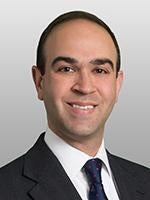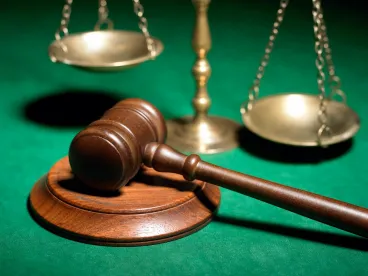In its decision in Kokesh v. SEC, issued on Monday, June 5, 2017, the Supreme Court unanimously ruled that “disgorgement” of ill-gotten gains by the Securities and Exchange Commission (“SEC”) is a “penalty” within the meaning of 28 U.S.C. § 2462. As a result, disgorgement is unavailable to the SEC in judicial proceedings involving conduct that took place more than five years before the filing of the government’s complaint. As explained below, because Section 2462 is a statute of general application (i.e., not specific to the SEC), the Court’s ruling could have implications for judicial civil penalty proceedings brought by the Consumer Financial Protection Bureau (“CFPB”), the Federal Trade Commission (“FTC”), the Commodity Futures Trading Commission (“CFTC”), and other financial and consumer regulators.
Summary of the Decision
In 2009, the SEC brought an enforcement action against Charles Kokesh in federal court, alleging that he had misappropriated the funds of four business-development companies he advised. After a jury found Kokesh guilty, the district court ordered $34.9 million in disgorgement, with $29.9 million of that amount resulting from conduct that Kokesh had engaged in more than five years prior to the SEC’s action against him. The question before the Supreme Court was whether Section 2462, which establishes a default five year statute of limitations for any “action, suit or proceeding for the enforcement of any civil fine, penalty, or forfeiture, pecuniary or otherwise” (except where a different statutory limitation period governs), applied to the judicial disgorgement sought by the SEC.
The Court’s opinion focused on the question of whether disgorgement obtained by the SEC is a “penalty.” Looking to past precedent, the Court determined that a penalty must meet a two-prong test:
First, whether a sanction represents a penalty turns in part on ‘whether the wrong sought to be redressed is a wrong to the public, [rather than a] wrong to [an] individual’ . . . . Second, a pecuniary sanction operates as a penalty only if it is sought ‘for the purpose of punishment, and to deter others from offending in like manner’—as opposed to compensating a victim for his loss.
Kokesh, slip op. at 5-6. SEC disgorgement, according to the Court, meets both prongs of this test. The Court explained that the SEC sought disgorgement in the public interest and not in the interest of any specific individual: “this is why, for example, a securities enforcement action may proceed even if victims do not support or are not parties to the prosecution.” Id. at 7. Further, disgorgement is imposed to punish the offender and deter future conduct rather than merely to accomplish “remedial” ends (restore the status quo) or compensate the victims of misconduct. Disgorged gains may exceed the actual profit (for example, by not deducting expenses) and are generally paid into Federal district courts, which have discretion as to whether to distribute the funds to victims. Accordingly, the Court concluded that SEC disgorgement orders are intended and imposed as penalties, and therefore are subject to the limitations period for civil penalties in Section 2462.
Implications for Consumer Financial Regulatory Investigations
While this case has generated significant attention, particularly for its relevance to SEC investigations, the practical impact on other regulators remains to be seen, and is highly dependent on the individual practices of those regulators and the scope and basis of their existing authority. For example, since Section 2462 is only relevant where no other statute of limitations applies, it would not affect most CFPB litigation in federal court, where there are clear statutes of limitation for both UDAAP and most enumerated consumer financial protection laws. Further, while disgorgement may have been thought of as way to impose significant monetary relief while avoiding the limitations on civil money penalties under Section 2462, the OCC has not generally sought orders of disgorgement (in large part, perhaps, because nearly all OCC matters are resolved through negotiated settlement). And, of course, Kokesh would not apply where the illegal conduct was relatively recent, though we may see regulatory agencies seeking tolling agreements more frequently and, in the short-term, moving quickly to wrap-up older matters.
At the same time, Kokesh may also arm some defendants with a strong argument to reduce the amount of disgorgement awarded against them. Typically, in seeking disgorgement, federal agencies such as the FTC take the position that they need not offset the amount of ill-gotten gains by the expenses incurred in obtaining them, which can have a substantial impact on the proposed settlement amounts. Under Kokesh, however, defendants may argue that such a measurement of disgorgement would not be equitable in nature, but rather punitive, and thus should not be available to agencies basing their disgorgement claims on a court’s equitable powers ( though agencies such as the FTC would likely try to distinguish some cases of disgorgement as non-punitive means of effectuating consumer redress). That said, this may not apply to agencies such as the CFPB, which, unlike the SEC and the FTC, has specific statutory authority to seek disgorgement.
Finally, Kokesh is also significant for what could be read as the Court’s implied challenge to the very notion of equitable disgorgement. In reviewing the history of Federal securities laws, Justice Sotomayor noted that the SEC initially lacked any “statutory authorization for monetary remedies” and urged courts to order disgorgement as an exercise of their inherent equitable power. In 1990, Congress authorized the SEC to seek civil penalties—endowing it with what Justice Sotomayor called “a full panoply of enforcement tools”—yet the SEC “has continued its practice of seeking disgorgement in enforcement proceedings.” This pointed observation, together with Justice Sotomayor’s comment in footnote 3 that the Court was not addressing the question whether and under what circumstances courts possess the ability to order disgorgement in SEC cases, could be viewed as an invitation to challenge the SEC’s power to request disgorgement in federal court actions generally. It may also invite challenges to the disgorgement power of other government enforcement agencies that lack express statutory authority to seek disgorgement. Such future challenges may ultimately prove to be the most significant legacy of the Kokesh case.





 />i
/>i

